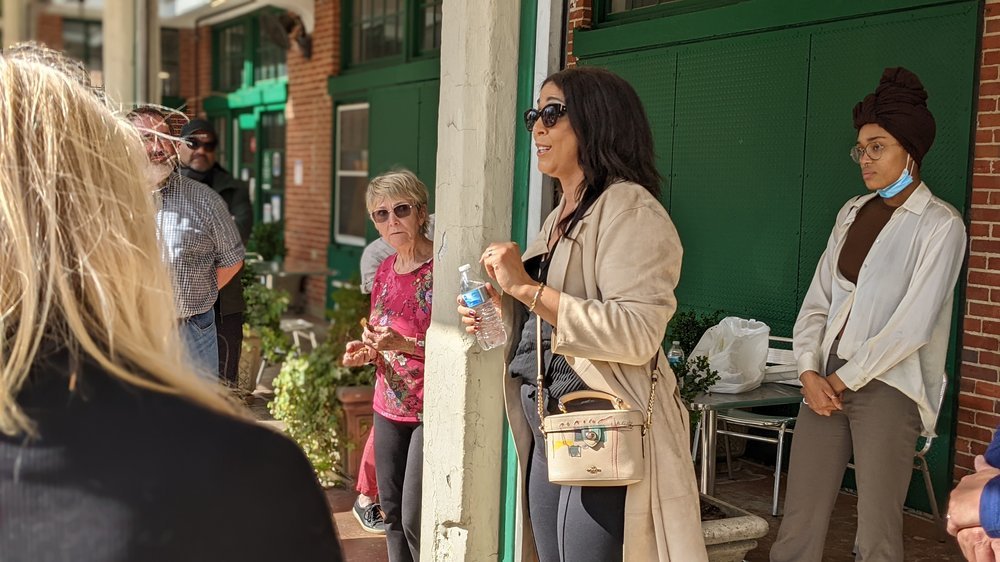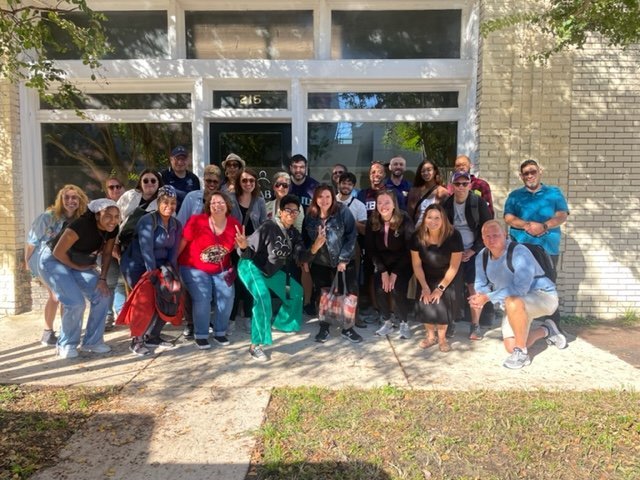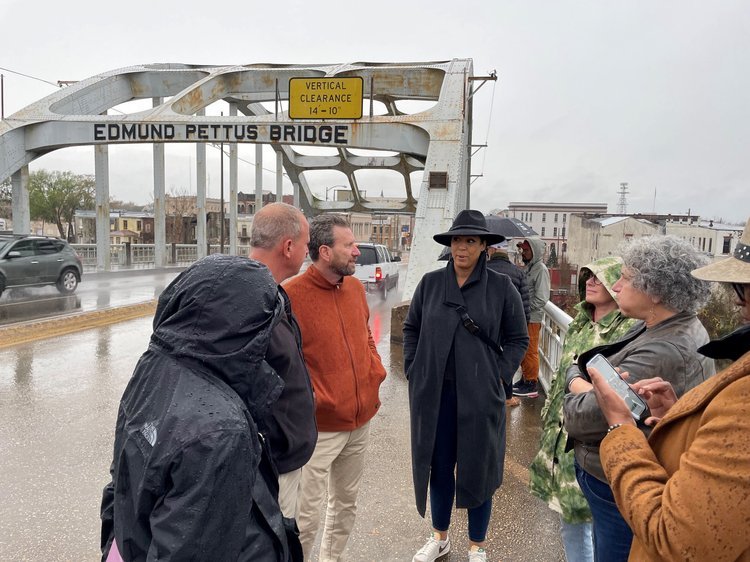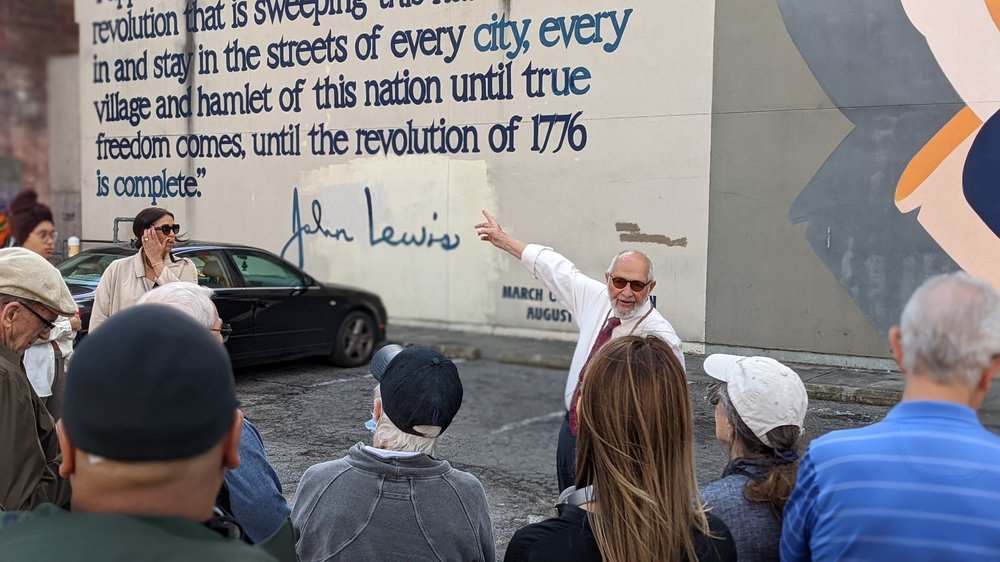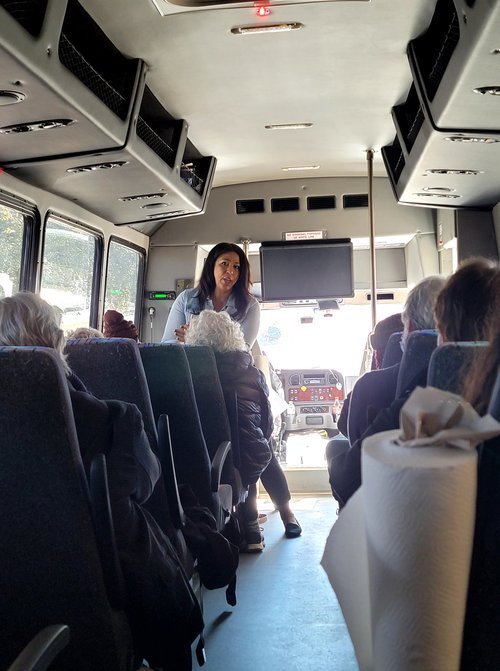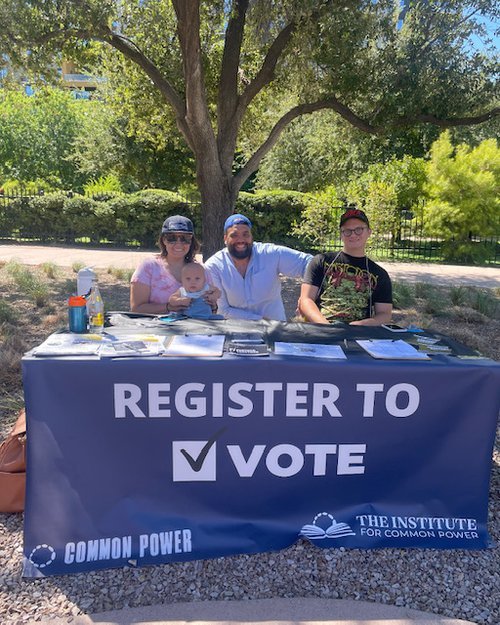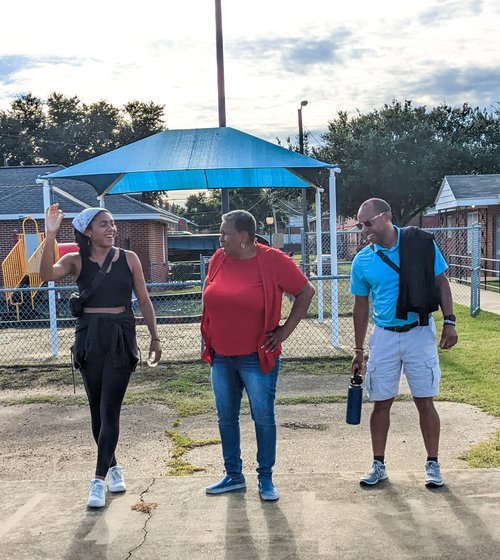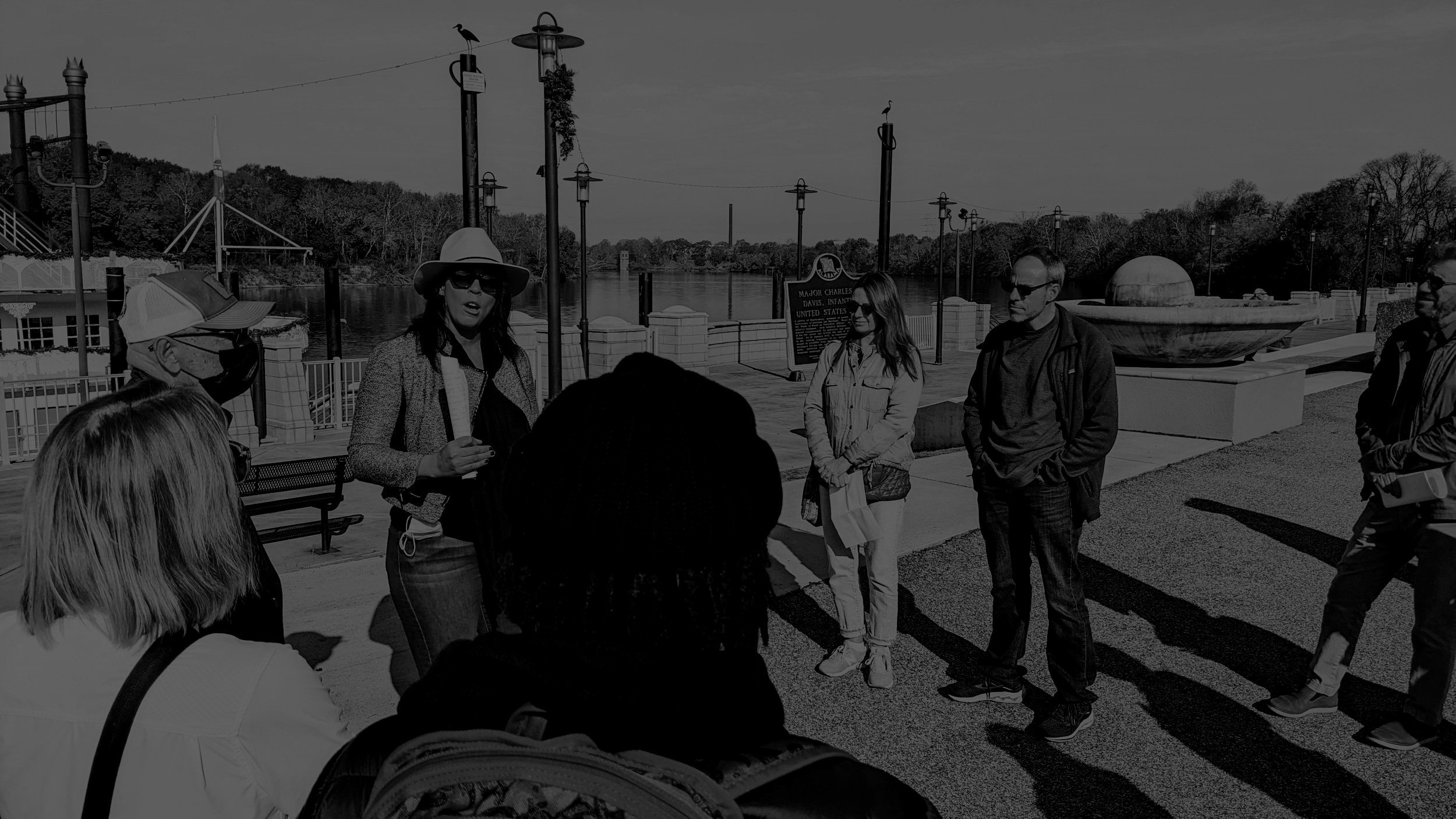
Our Vision
The Institute for Common Power provides education that fosters, sustains, and expands what should be the most common power in American democracy: the right to vote. Ensuring a vote for all is essential to dismantling systems of injustice and creating equitable healthcare, living wages, decent housing, affordable education, and so much more. Voting has always been contested in America, and today this foundational democratic power is under assault–especially for communities of color. The Institute for Common Power is devoted to education as a foundation to voting justice and inclusive democracy in the United States.
Education to Action!
Our Daily Mission
Movement Learning. We focus on and learn about how common power has been forged in America despite overwhelming obstacles. Specifically, we are guided by the strategies, people, and institutions in movements for Emancipation, Citizenship, Suffrage, Civil Rights, and Justice that have made us more democratic.
Immediate Application. We apply our learning to intertwined struggles today over civics education, voting rights, and a just democracy. Knowledge without application is the province of the privileged; in our programs we emphasize the links between voting justice and pathways to unlock systems of inequity and achieve genuine common power–right here, right now.
Purposeful Action. We commit to carrying our education into intentional action in support of voting justice and equity in America. This includes upholding accurate information about civil and voting rights, advocating for more inclusive enfranchisement policies, mobilizing people to cast votes, electing officials who are committed to voting for all, and implementing programs that demonstrate how we can create racial equity.
Lectures
Lectures and conversations in the Institute for Common Power are powerful ways to uncover typically unknown aspects of history. Our in-person and virtual lectures and conversations are designed to educate and inspire! Renowned scholars, authors, and activists are featured in our lecture series.
Truth & Purpose Learning Experiences
We believe that one of the best ways to learn is by going to the places where history is made. We learn by doing, by going. Our Truth and Purpose Learning Experiences take groups of people to historically significant places in the upper and lower South, from Virginia to Alabama, Mississippi, and elsewhere. We delve deeply into the past while learning from heroes who have worked to create change.
Workshops / Conversations
Workshops in the Institute for Common Power take multiple forms, each of which is intended to help facilitate your educational growth and help you better understand and uplift the world around you. Group setting interactions will help you determine your path forward in our collective desire to create change.
We focus on four core groups for Education to Action:
General Public
Educators
Professionals
Youth and Family
The Institute for Common Power creates educational opportunities that are interactive, experiential, accessible, and unbound by traditional systemic and financial hurdles. We both lead by example in our work and seek to empower everyone to make a difference. No one can do everything, but all of us can — and must — contribute to genuine progress in the struggles for voting and a just and inclusive democracy as we work to safeguard truth.

The Institute Team
-

Dr. Terry Anne Scott, Director
Dr. Terry Anne Scott is an award-winning historian, author, and speaker. She left her position as an associate professor of American history, and Chair of the Department of History, at Hood College in Maryland to become the Director of the Institute for Common Power. Dr. Scott earned her doctorate in history from the University of Chicago, where she was awarded a fellowship from the University’s Board of Trustees. She received a master’s degree with distinction from Southern Methodist University.
-
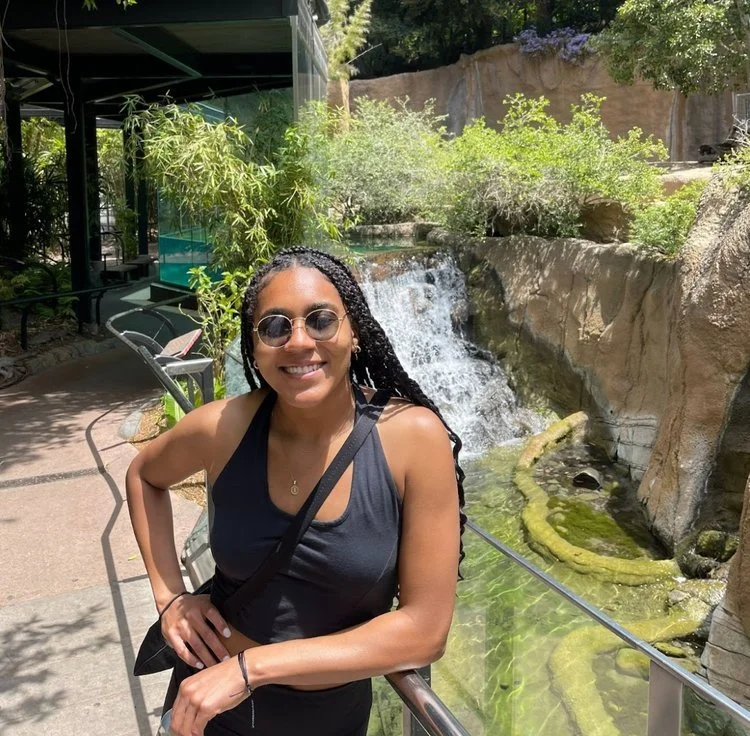
Jordyn Schulte, Admin Support
Jordyn Schulte, an associate at the Institute for Common Power, has a Master’s Degree in Science and an undergraduate degree in Physiology—both from the University of Arizona. She focused her studies and extracurricular activities, including an internship at the Mayo Clinic, on gaining a better understanding of the U.S. healthcare system and the health disparities present within it. Jordyn is specifically interested in the ways in which institutionalized racism perpetuate inequities for people of color and other marginalized communities. Jordyn has a passion for advancing health equity through the reduction of racial disparities and biases.
Jordyn recognizes the most crucial steps in creating a more just, equitable, and inclusive society are an honest education and ensuring the right to vote, thus, fortifying her passion and excitement to be a part of the Institute team. She will be utilizing her academic and professional experiences to provide project management support to lectures, learning tours, and educator initiatives, while also supporting the Institute’s health partnership with the University of Washington Department of Medicine.
-

David Domke, Institute Lecturer, CP Associate Director
At CP David focuses on Voter Fieldwork and Policy Advocacy, Education, and Donor Relations, while supporting the org in a variety of ways. He worked as a journalist for several newspapers in the 1980s and early 1990s before earning a PhD in 1996. He is a Professor in the Department of Communication at the University of Washington. His research has focused on communication, politics, and public opinion in the United States, and in recent years David has worked closely with several organizations on communication and civic action. In 2002 he received the University of Washington’s Distinguished Teaching Award.
-
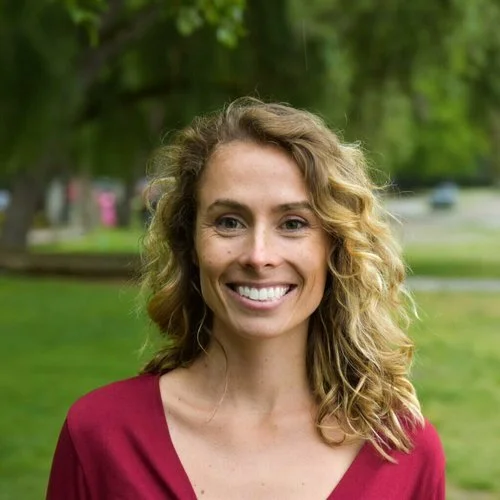
Devon Geary, Team Member
Dr. Devon Geary, a senior project manager in the Institute for Common Power, earned her doctorate in interpersonal and political communication from the University of Washington, where she was awarded the Excellence in Teaching Award. Throughout her career, she has been part of several initiatives focused on race and democracy, including at the Emmett Till Interpretive Center in Mississippi, the Highlander Research and Education Center in Tennessee, and Project Pilgrimage in Washington state.
Dr. Geary is committed to building diverse connections in pursuit of political equality, what Dr. Danielle Allen calls “bridging ties” that unite people across differences and lead to more egalitarian civic, health, education, and economic outcomes. In the Institute, Dr. Geary creates and expands programming like learning tours through the American South, educator initiatives, and virtual and in-person lectures and workshops. One of her sheroes is Ella Baker who inspired people to fight for a “freedom of the human spirit” that “encompasses all” of our rich humanity.
Guest Lecturers
-

Dr. Emilie Amt
Dr. Emilie Amt is an emeritus professor of history at Hood College in Frederick, Maryland, and an award-winning writer of African American history. She earned her B.A. from Swarthmore College and her doctorate in modern history from Oxford University.
Since 2010, Dr. Amt’s historical research has focused on African Americans in western Maryland in the era of slavery. She gives frequent talks, leads workshops, and works with local historical, church, and community groups on public history projects such as historic preservation and wayside markers. She also works with groups and individuals to use history and genealogy restoratively. Her research focuses on Washington County, Maryland, where she lives. John Brown launched his 1859 raid on Harpers Ferry from Washington County, and the Battle of Antietam was fought in Washington County in 1862.
Her most recent book is Black Antietam: African Americans and the Civil War in Sharpsburg (The History Press, 2022), which explores the previously untold stories of black eyewitnesses and participants in the battle that led to the Emancipation Proclamation. She’s also working on a book about the lived experience of enslaved people in Washington County, and several other related writing projects. In 2020 she collaborated with the Washington County Convention and Visitors Bureau to publish “The Underground Railroad in Hagerstown,” an award-winning walking tour and brochure based on new research.
A native of Maryland, Dr. Amt lives near Antietam National Battlefield and serves on the board of directors of Tolson’s Chapel, a Reconstruction-era black church and National Historic Landmark. One of her current projects is the restoration of Halfway African American Cemetery, a long-neglected burial ground that was in use from the 1840s to the 1930s. Dr. Amt has helped organize the ongoing cleanup of this abandoned site, helped locate gravestones, and led the research that has identified more than 300 burials in the cemetery.
Dr. Amt held the Hildegarde Pilgram Chair of History at Hood College in Frederick, Maryland from 1998 to 2021. As a professor, she taught a range of courses in world and U.S. history, as well as research and interdisciplinary courses. A medieval historian by training, she’s published many books and articles on the history of women, religion, war, and government. Her publications include college textbooks and scholarly editions of Latin texts.
Dr. Amt’s blog, and much more about her work, can be found at www.emilieamt.com.
-

Dr. Yohuru Williams, Common Power to the People Series
Dr. Yohuru Williams is Distinguished University Chair and Professor of History and founding director of the Racial Justice Initiative at the University of St. Thomas in St. Paul, Minnesota. Dr. Williams received his Ph.D. from Howard University in 1998.
Dr. Williams is the author of Black Politics/White Power: Civil Rights Black Power and Black Panthers in New Haven (Blackwell, 2006), Rethinking the Black Freedom Movement (Routledge, 2015), and Teaching beyond the Textbook: Six Investigative Strategies (Corwin Press, 2008) and the editor of A Constant Struggle: African American History from 1865 to the Present Documents and Essays (Kendall Hunt, 2002). He is the co-editor of The Black Panthers: Portraits of an Unfinished Revolution (Nation Books, 2016), In Search of the Black Panther Party, New Perspectives on a Revolutionary Movement (Duke, 2006), and Liberated Territory: Toward a Local History of the Black Panther Party (Duke, 2008). He also served as general editor for the Association for the Study of African American Life and History's 2002 and 2003 Black History Month publications, The Color Line Revisited (Tapestry Press, 2002) and The Souls of Black Folks: Centennial Reflections (Africa World Press, 2003). Dr. Williams served as an advisor on the popular civil rights reader Putting the Movement Back into Civil Rights Teaching.
Dr. Williams has appeared on a variety of local and national radio and television programs most notably ABC, CNN, MSNBC, Aljazeera America, BET, CSPAN, Fox Business News, Huff Post Live, and NPR and was featured in the Ken Burns PBS Documentary Jackie Robinson (2016), the Stanley Nelson PBS Documentary, The Black Panthers: Vanguard of the Revolution (2015), and the Judd Ehrlich film The Price of Freedom (2021). He was also one of the hosts of the History Channel’s Web Series, Sound Smart and was a featured commentator on History’s popular series, “The Titans that Built America” (2021) and “The Food That Built America” (2019).
Dr. Williams's scholarly articles have appeared in the American Bar Association’s Insights on Law and Society, The Organization of American Historians Magazine of History, The Black Scholar, The Journal of Black Studies, Pennsylvania History, Delaware History, the Journal of Civil and Human Rights and the Black History Bulletin. Dr. Williams is also presently finishing a new book entitled In the Shadow of the Whipping Post: Lynching, Capital Punishment, and Jim Crow Justice in Delaware 1865-1965 under contract with Cambridge University Press.



